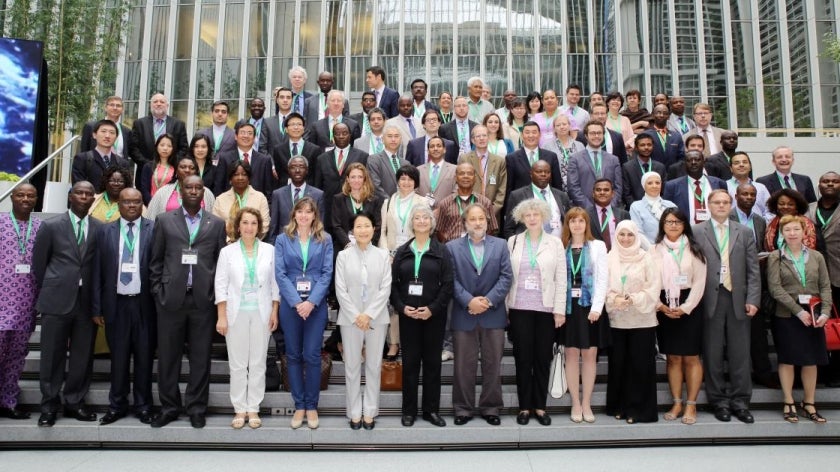
Washington DC, June 4, 2015 – The 48th meeting of the GEF Council, the governing board of the Global Environment Facility (GEF), closed today after three days of deliberations and the approval of the largest portfolio of projects and programs in the 23 year history of the GEF.
With a record-breaking work program amounting to $709 million and an additional $4.81 billion in co-financing, the approved projects and programs will position the GEF to move forward with vigor in tackling the most pressing global environmental challenges of our time. 57 recipient countries will benefit from GEF support across the globe, including 16 Least Developed Countries (LDCs), and three Small Island Developing States (SIDS).
“This Council was a very encouraging expression of confidence from our stakeholders in the GEF. The Council agreed today on an innovative program with a combined package of over $700 million in GEF investments to tackle drivers of environmental degradation around the globe through integrated, concerted efforts,” said Naoko Ishii, CEO and Chairperson of the GEF.
Some of the highlights from the work program include: (i) five major programmatic approaches, three of these Integrated Approach Pilots approved as part of the GEF-6 replenishment process. These cover illegal wildlife trade, coastal fisheries, sustainable cities, food security and taking deforestation out of commodity supply chains; (ii) three projects under the Non-Grant Instrument Pilot, demonstrating opportunities for strategic engagement with the private sector; (iii) 35 projects that embody focal area priorities in accordance with GEF-6 strategies. Council member from Kenya, Mr. Richard Lerisien Lesiyampe, strongly endorsed GEF’s innovative thinking. “This working program is so significant it will go into the annals of the GEF,” he said.
The GEF Council considered other new developments for GEF 6, including a strengthened Results-Based Management framework, a Knowledge Management action plan, and plans for gender mainstreaming. The Council also welcomed three new agencies to the GEF family as project agencies. These are the West African Development Bank (BOAD), the Development Bank of Latin America (CAF), and the Foreign Economic Cooperation Office (FECO) from China.
Two invited guest speakers addressed the Council, shedding light on some of the important work that lies ahead for the GEF. The Peruvian Deputy Minister of Environment, Mr. Gabriel Quijandría Acosta, is one of the two co-chairs of the Green Climate Fund Board. He spoke on the evolving climate finance architecture, and the role to be played by institutions providing environmental funding on the road to Paris. Also addressing the council, guest speaker Jeff Seabright, Chief Sustainability Officer at Unilever, spoke on the role of the private sector in reversing environmental degradation. He called for using the energy, innovation, capital and scale of the private sector through effective partnerships to achieve transformational change by working to overcome barriers to investment.
In her remarks during the 18th LDCF/SCCF Council Meeting, Naoko Ishii thanked contributing partners for their support to the LDCF and SCCF which as of today amount to nearly $1.3 billion. She highlighted the progress made under the Funds which illustrates that vulnerable developing countries are translating their adaptation needs into fundable projects and programs. Invited guest speaker, H.E. Agostinho Tavares da Silva Neto (Ambassador from the Republic of Angola), addressed the Council on behalf of the Least Developed Countries (LDC) group. He spoke of the progress made under the LDCF to support urgent and immediate adaptation needs. He also underlined the importance of sustainable and predictable financing for adaptation, as to strengthen and improve future project implementation.
Prior to the start of the Council, members met with civil society organizations for a full day of consultations. In dialogue with the CEO and with partner organizations, civil society discussed ways to strengthen CSO involvement in the GEF. On the margins of this meeting, a working group on public involvement met to begin work on the operationalization of the Guidelines for the implementation of the GEF Public Involvement Policy.